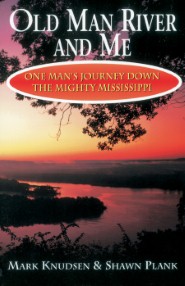If only terrorists were cowards
(Note: Remember after the September 11, 2001, attacks, how President Bush and other politicians called the al-Qaida terrorists "cowards?" And remember how comedian Bill Maher questioned that? He said: "Staying in the airplane when it hits the building. Say what you want about it. Not cowardly." Remember the controversy that surrounded that? Maher was attacked, lost sponsors for his TV talk show, eventually leading to the show's cancellation. Six years earlier, well before 2001, I wrote a column in which I pondered why politicians insisted on calling terrorists "cowards." Unlike Maher's remarks, my column generated nowhere near the amount of controversy. In fact, none.)
I wanted to read the Unabomber’s 35,000-word manifesto published by the Washington Post.
I thought the nearly book-length document would help me understand why this anonymous terrorist was so adamantly against technology that it caused him to send people mail bombs.
I read excerpts of the manifesto, but I felt I didn’t get the full weight of his anti-technology views. (At least, I couldn’t understand from brief excerpts why a dislike of advances such as, say, the microwave oven, make him do what he does.) I needed the entire document.
Unfortunately, I don’t have access to the Washington Post. So where could I find this infamous writing?
The Internet. Ironically, the only way I could read this anti-technological diatribe was to tap into the most talked-about technological advance today. Without this computer network that the Unabomber probably hates, I couldn’t find out to what degree he hates advances like the Internet.
So I logged on and found it. The police sketch of the hooded Unabomber popped up on my computer screen. Alongside it was a button to access the document. But when I clicked the button, I found it would take nearly half an hour to transfer the lengthy document to my computer.
Half an hour? I don’t have that kind of time. Plus, I’d have to pay for those 30 minutes online. And on top of that, the Unabomber’s manifesto is so long I wouldn’t have room for it on my computer’s modestly sized hard drive, anyway.
I logged off without reading it.
If only I had a faster modem and more space on my hard drive, I could have satisfied my curiosity. If only I had more advanced technology working for me, I could have found out why the Unabomber thinks advances in technology like these are so bad.
But for now, I’ll have to settle for what others are saying about him. Mainly, public officials say he’s a “coward” for doing what he does. But then, public officials uniformly call all terrorists “cowards.”
After the bombing of the federal building in Oklahoma City, President Clinton branded the perpetrators of the act “evil cowards.” After the derailment of the Amtrak passenger train in Arizona recently, Clinton said those responsible for causing the accident committed a “cowardly act.”
There is a definite trend here. Anytime there’s a terrorist act, I imagine politicians huddling with their aides and spin doctors.
“OK, let’s go over the terrorism-response checklist,” a spin doctor says. “You’ve described and denounced the act, you’ve released a police sketch that will end up looking nothing like the person police catch, you’ve issued alerts and announced rewards, you’ve — uh-oh — you haven’t called the perpetrators ‘cowards!’ Oh, this is a serious breach of protocol, a public relations nightmare!”
Yet, calling a terrorist a “coward” seems wrong. It sounds like an elementary school playground stunt that a bully uses to pick unnecessary fights: “C’mon, punk, fight me! C’mon, what are ya, a coward?” This provokes the “coward” to strike the bully to prove his lack of cowardice. Similarly, calling a terrorist a coward would seem only to encourage them to strike again to demonstrate they aren’t cowardly.
When Clinton calls another terrorist a “coward,” he might as well say: “C’mon, Mr. Terrorist, ya ’fraidy cat! What are you afraid of? C’mon, ya big yella dog, pick on someone your own size! What are you? Chicken?” At this point, the chief executive would tuck his thumbs into his armpits and flap his elbows, saying in falsetto, “Bawk, bawk, bawwwwk! Chicken!”
The primary definition of “coward” is “one who lacks courage in the face of danger, pain or hardship.” If you’re going to have terrorists, it seems to me that these are the kind of terrorists you would want — the kind who are so timid and unsure that they are afraid to act; the kind who perpetually postpone their contemptible deeds. If more of our terrorists truly were cowards, there would be fewer acts of terrorism.
To be fair, there is a dictionary definition that says “coward” works for someone who commits a dastardly act. But it’s way down at the bottom of the definitions. We can’t expect terrorists to wade through four or five definitions to find out what public officials are really saying about them.
And you especially can’t trust terrorists to look it up because they probably think dictionaries — like computers, garage door openers and wide-slot toasters — are too complex of a technological advance.




 Friday, December 31, 1999 at 7:01 PM
Friday, December 31, 1999 at 7:01 PM
Reader Comments